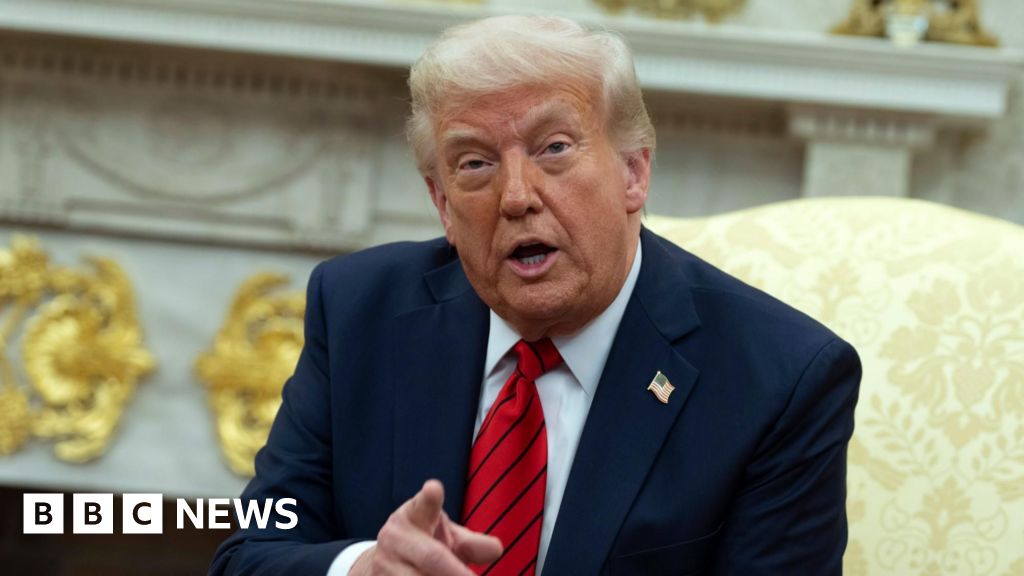Supreme Court Halts Deportations of Venezuelan Migrants Amid Legal Dispute

The United States Supreme Court has issued a critical temporary order to halt the deportation of two Venezuelan men, invoking a rarely used wartime law that has sparked considerable controversy. This decision is particularly significant as it raises questions about the power of the executive branch, especially during the Trump administration, which previously employed similar legal mechanisms to carry out mass deportations.
In a ruling released early on Saturday, the Supreme Court effectively paused the deportation process after the men's lawyers submitted an urgent petition. This petition highlighted an imminent risk of their removal from the country without the due process guaranteed under the law. The Court's unsigned order stated, The Government is directed not to remove any member of the putative class of detainees from the United States until further order of this Court. This order grants a temporary reprieve and opens the door for further legal challenges that could potentially escalate into a constitutional crisis.
The decision was not unanimous; two justices, conservatives Clarence Thomas and Samuel Alito, dissented from the ruling, illustrating the ongoing divisions within the Court regarding immigration matters and executive power. The case had garnered attention following an emergency appeal initiated by the American Civil Liberties Union (ACLU), which argued that immigration authorities were preparing to utilize the Alien Enemies Act of 1798, a piece of legislation not invoked for decades.
Previously employed during World War II, this particular law has been resurrected by the Trump administration as a strategy to deport alleged gang members from Venezuela, specifically targeting those associated with the Tren de Aragua gang. The administration claims these individuals are conducting irregular warfare within the United States, a statement that has ignited heated discussions regarding the implications of such an interpretation of executive power.
In April, the Supreme Court had stipulated that deportations could only proceed if detainees were afforded an opportunity to contest their removals in court and were granted a reasonable time to do so. The recent order aligns with these stipulations, emphasizing the importance of due process.
Lee Gelernt, an attorney with the ACLU, expressed deep relief at the Court's decision, emphasizing the dire consequences the detained individuals faced. These individuals were in imminent danger of spending the rest of their lives in a brutal Salvadoran prison without ever having had any due process, Gelernt stated in an email to The Associated Press.
As of now, the White House has not released any official comments regarding the Supreme Courts ruling. The ruling comes on the heels of lower federal judges who had previously declined to intervene and stop the deportation proceedings. The US 5th Circuit Court of Appeals has yet to make a decision on the matter, which prompted the ACLU to escalate their petition directly to the highest court in the land.
Reports indicate that some of the men scheduled for deportation had already been loaded onto buses, under the impression they were being sent back to Venezuela. During a hearing on Friday, a government lawyer stated he was unaware of any immediate deportation plans from the Department of Homeland Security (DHS) but noted that the agency reserves the right to conduct removals on short notice.
This situation comes in the wake of a controversial series of deportations earlier this year, where the Trump administration expelled 238 alleged Venezuelan gang members along with 23 members of a Salvadoran gang to a maximum-security prison in El Salvador. This occurred despite a federal judge in the US granting a temporary suspension of those expulsions, underscoring the contentious nature of these deportation efforts.
Among those deported was Kilmar Abrego Garcia, a Maryland resident who had secured a protection order preventing his removal. Despite this ruling, the Trump administration later acknowledged its mistake in deporting Garcia, yet it has continued to resist a separate Supreme Court order to allow his return to the United States.
Democratic Senator Chris Van Hollen, who recently met with Garcia in El Salvador, expressed grave concerns upon his return to the US. He emphasized, It is very clear that the president is blatantly, flagrantly defying the order from the Supreme Court. Van Hollen further articulated that this case encompasses broader implications beyond the individual's plight, stating, This is about protecting fundamental freedoms and the principle of due process that safeguards everyone residing in America.





























